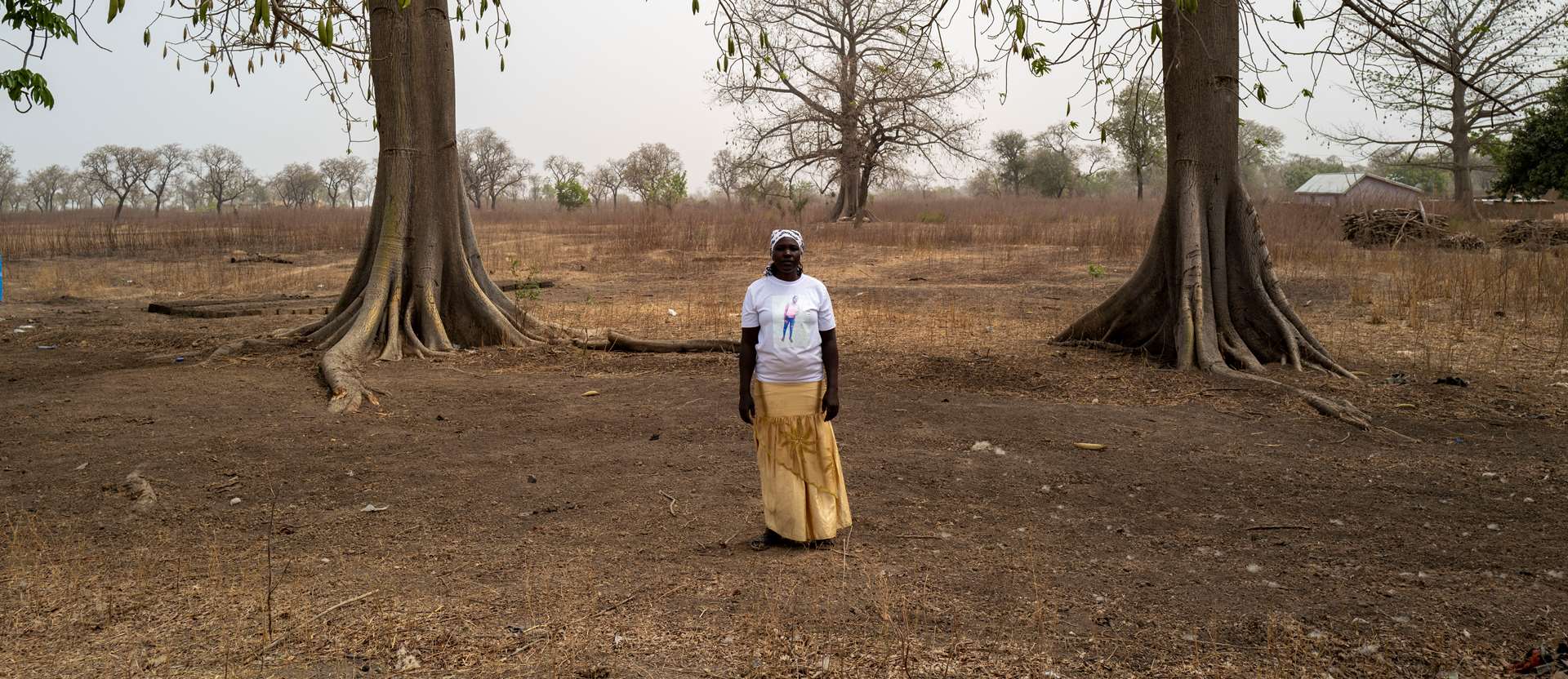
Nsormabilah's story
When we meet Nsormabilah Thomas in the Ghanaian village of Achubungur, she’s wearing a t-shirt with a teenage girl on the front.
She tells us the picture is of her daughter, now 23 years old – “she’s schooling in Tamale, and she’s doing very well.” However, Nsormabilah explains that this almost wasn’t the case - “my daughter got sick. There was nothing we could do. We had to rush her to the hospital; they said she was anaemic and needed blood”.
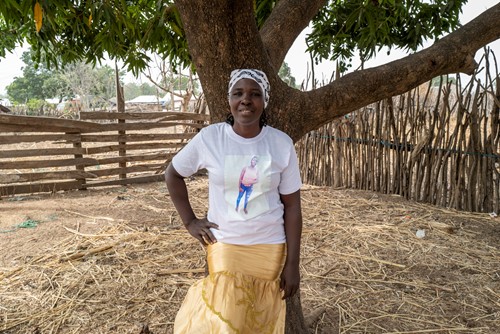
Thankfully, Nsormabilah had access to funds from the cooperative business group she has been part of since joining her local Tree Aid project, and was able to pay for the treatment her daughter needed.
“If what had happened to her had happened before Tree Aid’s intervention, my daughter would have died. I am so happy my daughter survived”.
This is the story of how Nsormabilah’s cooperative group came to be – and of the impact it has had for her, and her community so far:
Growing groundnuts – from the ground up:
Working alongside cashew farmers in Ghana’s West Gonja district, Nsormabilah has been growing groundnuts (or peanuts) to boost her income. It can be difficult to access agricultural training in rural areas of Ghana however, as part of the project, Nsormabilah received practical advice on the most efficient, cost-effective and sustainable ways to farm.
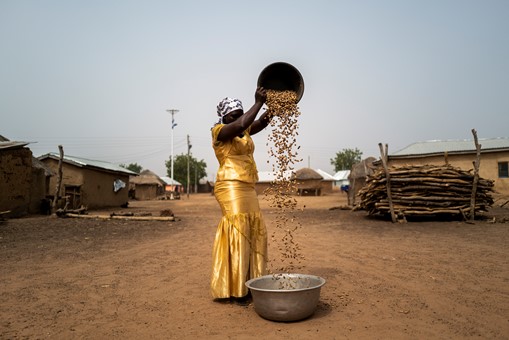
“Tree Aid has really been helpful to us. Before they came, we used to weed and plant on massive fields and only reap a small harvest. Imagine farming on vast lands and still struggling to get food to eat. That was our situation.”
Groundnuts are a nitrogen-fixing ‘legume’, meaning they can be grown alongside cashew trees to improve the health of the soil. Together, these two crops are helping to tackle land degradation in an area where desertification is a major threat.
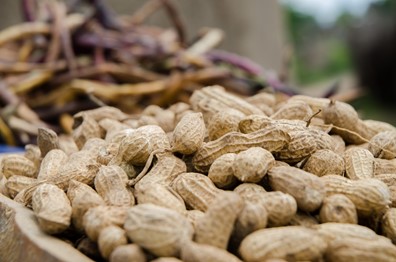
“Tree Aid brought us good quality groundnuts to plant, and showed us how to farm it well - each of us got 15 kilos to plant on our farms. We were discouraged from using fertilizers but our harvest still turned out great.”
This is part of the ‘climate-smart’ approach of this project – where the whole community grows together, in an ‘agroforestry’ system which is helping to restore the land, and reduce the need for artificial fertilisers.
"Paying peanuts":
Once grown, peanuts can be processed into a number of popular products, which are sold at local markets. This includes kulikuli, a popular crispy snack, which resembles something between a donut and a pretzel!
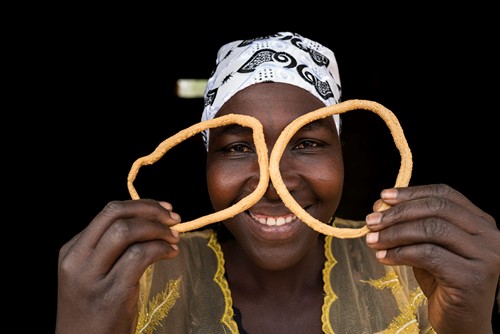 “When we harvest our groundnuts, we are able to make kulikuli from it, which we sell. We can also sell the groundnuts dried or fresh or make groundnut paste from them”
“When we harvest our groundnuts, we are able to make kulikuli from it, which we sell. We can also sell the groundnuts dried or fresh or make groundnut paste from them”
Our enterprise development approach covers all elements of running a business, to help women like Nsormabilah sell these products. From marketing to sales negotiation skills, we provide training and support which invests in women’s creativity to get those kulikuli flying off the shelves!
Across all of our projects, we’re encouraging women like Nsormabilah to join “Village Tree Enterprises” (VTEs). These are collaborative business where incomes can be shared, and money pooled. When women come together in these enterprise groups, amazing things happen. VTEs are helping to grow an environment of mutual support, an empowering network in which women can share ideas, and ensure a fair price for the items they sell at market.
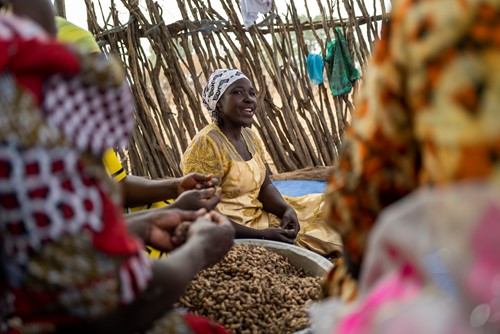
“We make more money if we sell as a group, so once we harvest, we bring all our groundnuts together and take it to Tamale or Techiman to sell. Those are much bigger markets than the ones we have here, so we get better value”
VTE groups are particularly important for rural women like Nsormabilah, who are historically more affected by poverty and food insecurity than their male counterparts.
“Before Tree Aid’s intervention, we were heavily dependent on our husbands and sometimes they mishandled us because of that, but now our circumstances have changed.”
Women in Ghana face barriers like unequal access to resources and services, so improving their access to natural resources and markets is a key step in supporting them to feel empowered and financially independent.
Without the collaborative support of her enterprise, Nsormabilah may not have been able to pay for her daughter’s emergency medical needs. Yet her VTE group has played an important role in improving general quality of the life for its members too.
Nsormabilah told us that in the past, “getting pocket money for the kids to go school was difficult. We struggled to get them even one Cedi… we even struggled to get them house clothes.” Now, she tells us, “we dress them in neat school uniforms, nice shoes and clean socks [and] assure them there’ll be food waiting for them when they return from school”.
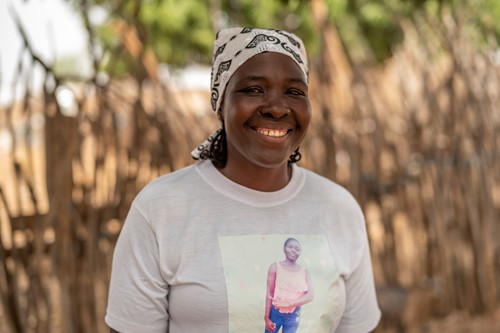
This increase in financial autonomy has had a transformative effect on Nsormabilah. “When you are broke” she said, “you can’t attend social events. Now, we don’t hide anymore when we are invited. We show up in style and it is beautiful”.
It’s incredible to see the impact that a Tree Aid project can have for the people who take part. The growing projects across Ghana’s West Gonja district are beginning to transform lives, livelihoods and land, all at once.



